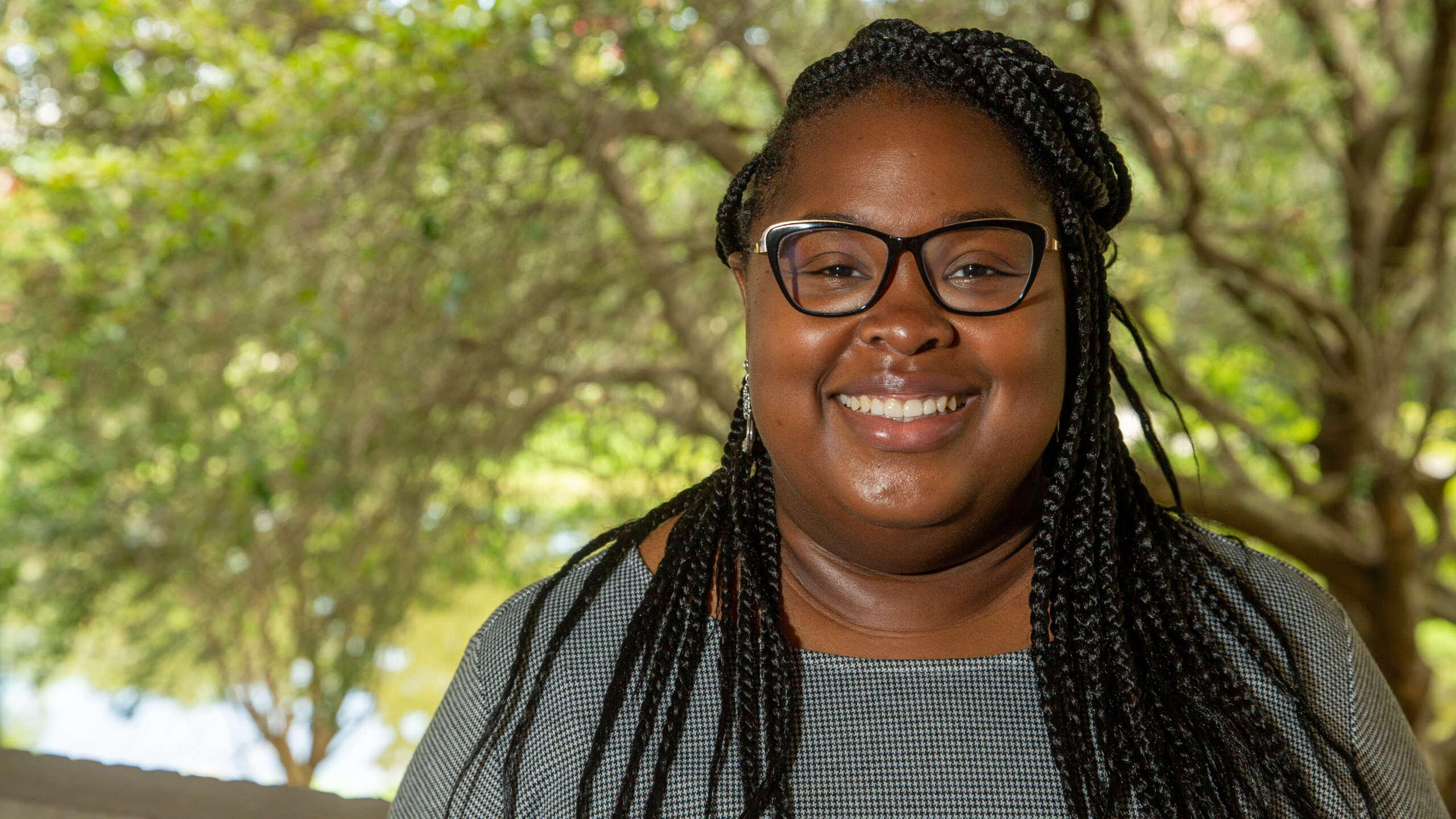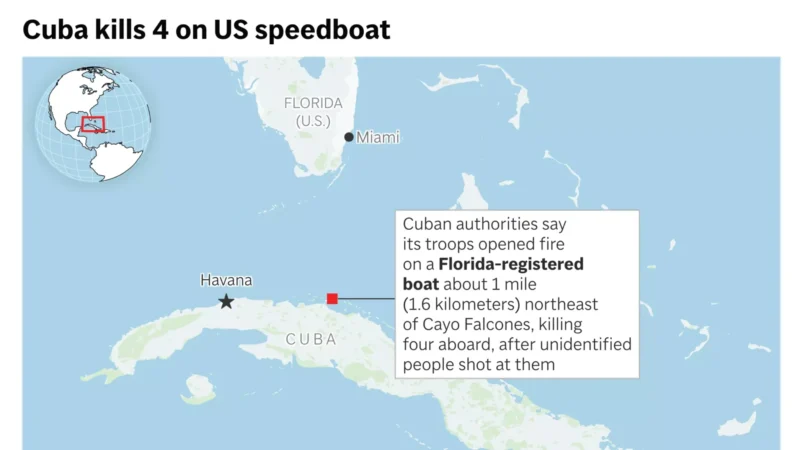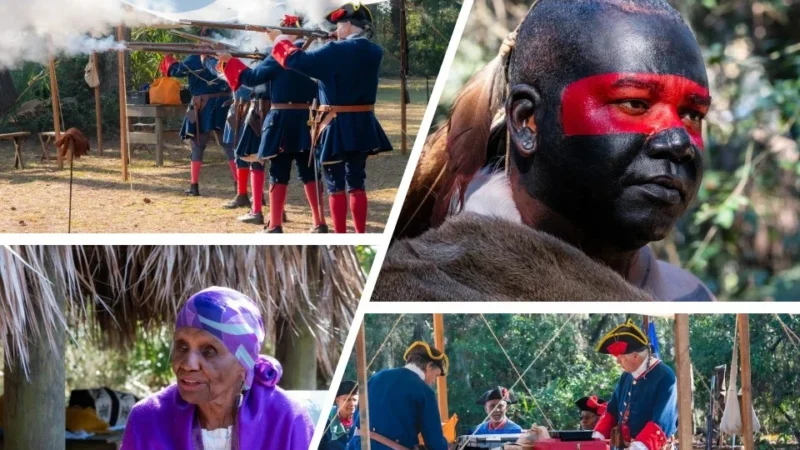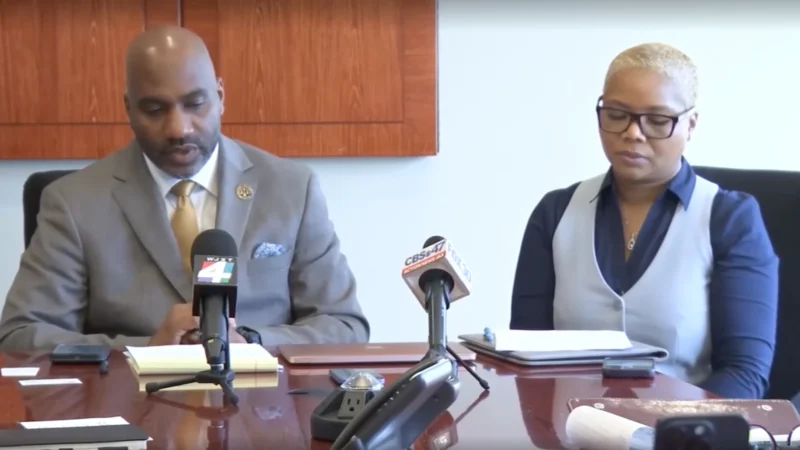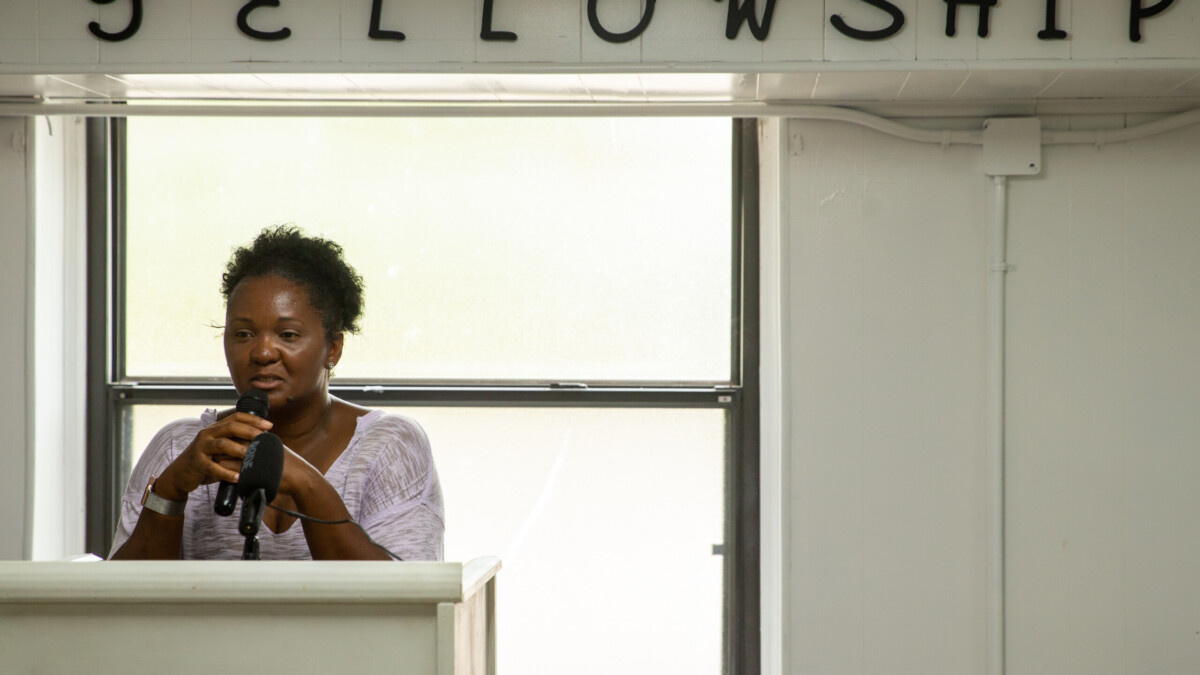A Jax Today Q&A with Audrieanna Burgin
Audrieanna Burgin could not resist coming home.
Burgin is a Jacksonville native and University of North Florida alumna who lived on the Southside and other areas of town before graduating from what is now known as Riverside High School. She is beginning her first full academic year as the director of UNF’s Diversity in Business Program.
The public university is deepening its connections in Jacksonville high schools and with community organizations to try to attract more Black students to its Coggin College of Business.
The program exposes middle- and high-school students to the business school and creates professional development opportunities for students already on campus.
Aided by grants from Jacksonville-based CSX railroad company and the city’s Kids Hope Alliance, the program started in January. Burgin, the daughter of two pastors, aims to spread the gospel of not only the business school but the entire university.
In a conversation with Jacksonville Today, Burgin says the business school program with 85 students is looking to expand by 20% this academic year to become better reflective of Jacksonville as a whole.
Jacksonville is 56.3% white, 30.9% Black, 10.4% Latino and 4.8% Asian, according to a 2021 Census estimate. The percentage of Hispanic, Black and Asian students at UNF is on the rise, but the Coggin College of Business had an enrollment that was 60.9% white; 8.7% Black, 14.3% Latino and 6.4% Asian at the start of the Fall 2021 semester.
Q: To be able to come back to your alma mater in this capacity, what has that meant to you?
A: It has meant everything. I’m born and raised in Jacksonville. I came through Duval County Public Schools and went to UNF in the Coggin College of Business. I sat in the same seats as these students.
It has been a way to provide them something I didn’t have. I came through the economics program. I was the only African American student in a lot of my classes. And this was 2007 to 2011…Coming back for the Diversity in Business Program was really about impact. It means a lot to come back to start a program for undergraduates.
Q: How do you see this program helping Jacksonville and Northeast Florida?
A: This program is going to increase our authenticity as a college. It’s going to make our statement of unity come alive. We are actually going to put action behind it. Dr. Richmond Wynn, with his elevation to Chief Diversity Officer, I have a lot of conversations with him. His commitment to diversity – not just with students and faculty – but the vendors we do business with (and) the entire (university).
We can be a part of the change that is happening in Jacksonville, a part of the revitalization in Jacksonville.
To be frank, the students in Jacksonville, particularly students of color, are not viewing UNF as a viable option. We’re affordable. We’re right in their backyard. I tell students when they come out here for tours, “You don’t have to come to UNF, but I want you to consider UNF.” Because when they get on that charter bus and come to this campus and they see it, it’s different.
Q: Coggin College of Business alumni often stay in town and either develop their own companies or become executives at local companies. With so many alumni in the Jacksonville business community, how important is it to connect diverse students – whether they are Black students, whether they are women – with those UNF alumni who are all around?
A: For our early-career mentors, we actually targete young alumni of color. Not only have we done that, we created a partnership with the Black Student Union and the Black Alumni Association. They are committed to piping in minority alumni in Jacksonville.
It’s important because the Coggin College of Business gets practicum very well. We target alumni and say to students, ‘Here is a representation of what you can be.’ That’s really the most important thing for our minority students. You’re here now. You’ve made that first step. Now, let me show you what you can be.
Q: How important are diversity of thought and diversity of perspective for businesses? Is that something that’s incorporated into the Diversity in Business Program?
A: We have not shied away from those conversations. The first group we had on campus, we talked about microaggressions, systemic racism and all those things… When I talk about the program for white students and students who are not of color, this is an opportunity for all of us to grow. Talking about diversity and inclusion is an opportunity for you to learn about people who are different from you.
I do have white students in the program. We are exposing them to, and helping them work through, personal challenges. Having them have community helps their emotional and social journey.
These are pandemic students. Some of the students are not getting the professional development I got. It’s a different playing field. It’s even more important for students who feel disconnected than they ever have.
Q: From your work here, what often overlooked soft skills will take someone far in business?
A: It’s emotional intelligence. It’s learned and it’s practiced. I’ve learned and practiced it. I started with someone who didn’t understand my culture, didn’t understand my background, but they were open to understanding.
Everyone you extend grace and kindness to won’t be open to receive it. But, if a person is open to understanding my background, this is my opportunity to create that change we want to see. It’s a person at a time and a conversation at a time.
When students go out into the world, in a business sense, they will be able to maintain themselves in any type of area. …Having that emotional intelligence is important. In their mind, it’s truly a mindset of “I can create change one conversation at a time.”
This conversation was edited for clarity and context.


